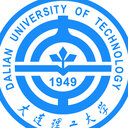[Trigemino-cardiac reflex in skull base surgery].
Palabras clave
Abstracto
To explore the mechanism, clinical features, and prognosis of Trigemino-cardiac reflex (TCR) during skull base operations.
A retrospective analysis was performed on 291 patients with skull base disease from Jan. 2009 to Oct. 2015 in Peking University First Hospital. By reviewing the patients' operative data and anaesthetic electrical record, and we picked out all the patients who suffered from TCR during the operation and analyzed their surgical procedures, clinical features, influence factors, and prognosis. TCR was defined as a drop in mean arterial blood pressure (MABP) and the heart rate (HR) of more than 20% to the baseline values before the stimulus and coinciding with the manipulation of the trigeminal nerve.
In all the 291 patients receiving skull base surgery, 9 patients suffering TCR for 19 times during the operation were found. These 9 cases included three acoustice schwannomas, one trigeminal schwannoma, one petroclival meningioma, one epidermoid cyst in cerebellopontine angle, one cavernous sinus cavernous hemangioma, one pituitary adenoma, and one trigeminal neuralgia. The trigger of TCR was related to manipulation, retraction, and stimulation of the trunk or branches of trigeminal nerve. The baseline heart rate was 62-119/min [mean (79.4±14.6) /min] and dropped about 29.0%-66.4% (mean 44.3%) to 22-60 /min [mean (44.2±9.6) /min] after TCR. The baseline mean arterial blood pressure was 75-103 mmHg [mean (87.5±7.8) mmHg] and dropped about 23.4%-47.2% (mean 37.3%) to 45-67 mmHg [mean (54.9±6.3) mmHg] after TCR. During the 19 times of TCR, heart rate and blood pressure could return to baseline in a short time while stopping manipulation (8 times), using atropine (8 times, dose 0.5-1.0 mg, mean 0.69 mg), using ephedrine hydrochloride (one time, 15 mg), using epinephrine (one time, 1 mg), and using dopamine (one time, 2 mg). TCR also could be triggered again by a second stimulation. There was no relative cardiologic complication or neurological deficit in the postoperative 24 hours.
TCR is a short neural reflex with a drop in blood pressure and heart rate coinciding with the manipulation of the trigeminal nerve in skull base surgery. Correct recognition, intensive observation, and essential management of TCR will lead to a good prognosis.



